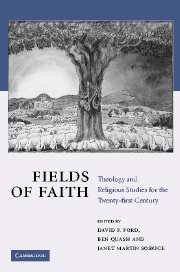Introduction
Published online by Cambridge University Press: 22 September 2009
Summary
How is the study of theology and religions in higher education to be shaped in the coming century? There is obviously no single answer to that question. Empirically, there will of course continue to be great diversity in the ways the field is formed, some of which do not accept that theology and the study of religions should be institutionally connected. This diversity is rooted in different histories, interests, commitments and visions, but there is little enough literature that engages with these in order to shape a fruitful future for the field. The lack is especially serious in relation to those settings where theology and religious studies go together, the number and vitality of which increased in the last quarter of the twentieth century.
The contributors to this book examine that togetherness from various angles with a view to the future. They do this in Part I by giving accounts of the field and making suggestions about its future; and then in Part II by ‘performing’ the interplay of theology and religious studies. In this part the claim that the two should come together is supported by showing in practice that the treatment of significant topics benefits from their interplay. In conclusion, there is a response to the book based on some intensive discussion between an editor, a contributor, and a participant in the consultation that was part of the book's genesis.
- Type
- Chapter
- Information
- Fields of FaithTheology and Religious Studies for the Twenty-first Century, pp. xiii - xviiiPublisher: Cambridge University PressPrint publication year: 2005
- 1
- Cited by



